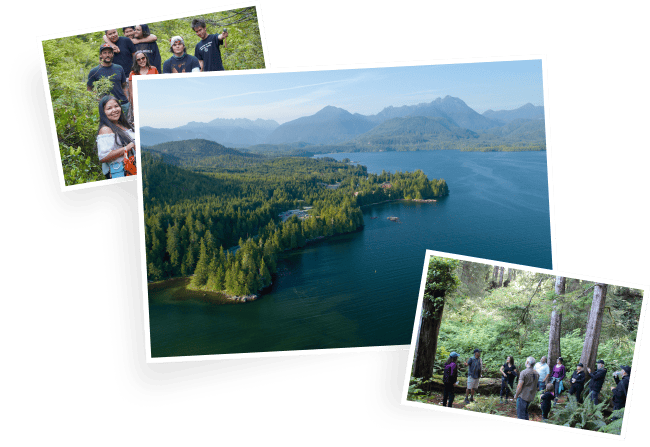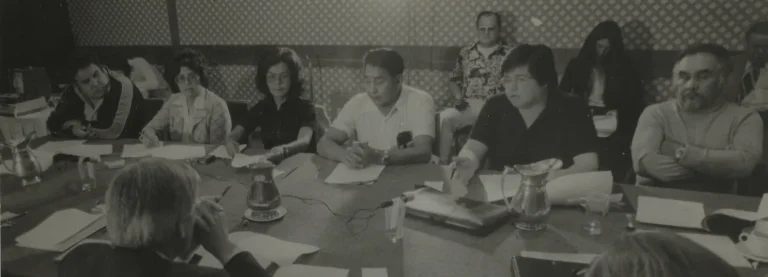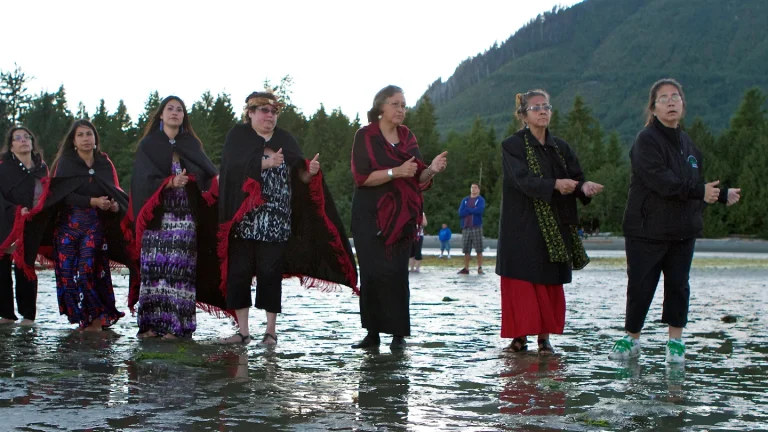Che:k’tles7et’h’
Home > Treaty Rights
Treaty Rights Advancing Progress
Self-Governance Restored
Through the Maa-nulth Treaty, the Maa-nulth Nations have stepped beyond the constraints of the federal Indian Act to exercise their inherent right to self-determination.
Each Nation now holds the authority to:
- Create and implement their own laws
- Govern according to their own Constitution
- Define rights and responsibilities for their citizens
- Build governance systems that reflect their values
Law-Making Authority
Maa-nulth First Nations hold legislative powers across more than 70 subject areas. Where conflicts arise between laws, the treaty clearly defines which law prevails—ensuring respect for Nation authority within Canada’s constitutional framework.
Advancing together while honouring Nation identity
The treaty recognizes each Nation as a separate government. This allows Nations to exercise rights individually while pursuing shared goals through collaboration, respect, and collective advocacy.

Land and Resources
Maa-nulth First Nations own and govern approximately 24,700 hectares of land. Each Nation manages land use, issues permits, and participates in environmental planning and resource management in surrounding areas.

Fishing Rights

Wildlife and Migratory Birds
Maa-nulth Nations retain rights to harvest wildlife and birds. Across its territories Maa‑nulth participates in planning processes and collaborates on conservation goals.
Forest Resources
The Treaty recognizes a right to harvest and manage timber and non-timber forest products. Each Nation establishes rules and permits for forest use on their lands.
Economic Development
With recognized land ownership and law-making authority, Nations are building businesses, attracting investment, and creating opportunities reflecting local values and long-term vision.
Self-Government Powers
Each Nation defines citizenship, runs programs, and governs according to its own laws and priorities reflecting a restoration of self-determination and community-led leadership.
Financial Benefits
The treaty provides for financial transfers, revenue sharing from resource development, and the ability to raise revenue. These tools support governance, services, and long-term planning.
Learn more


